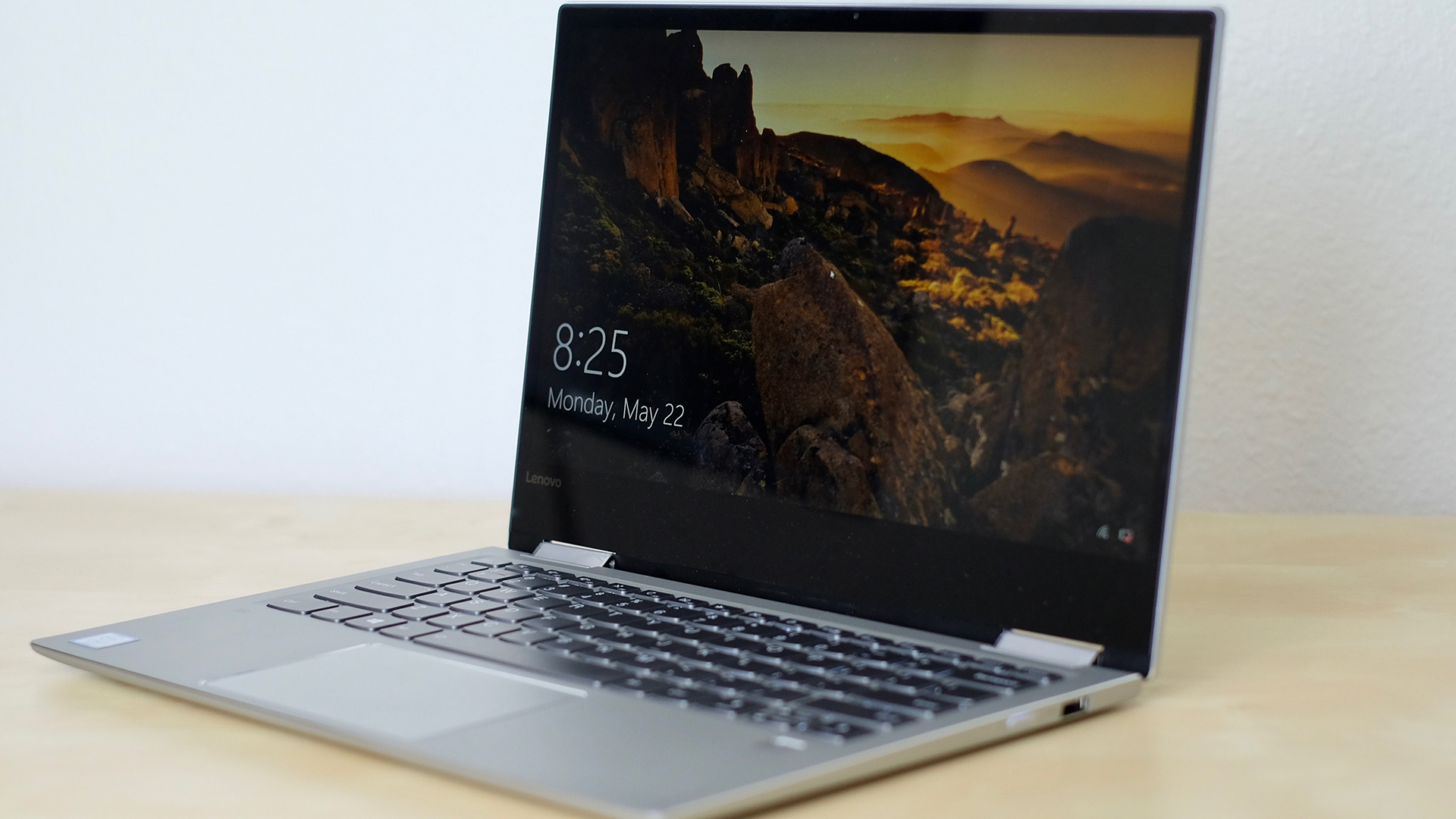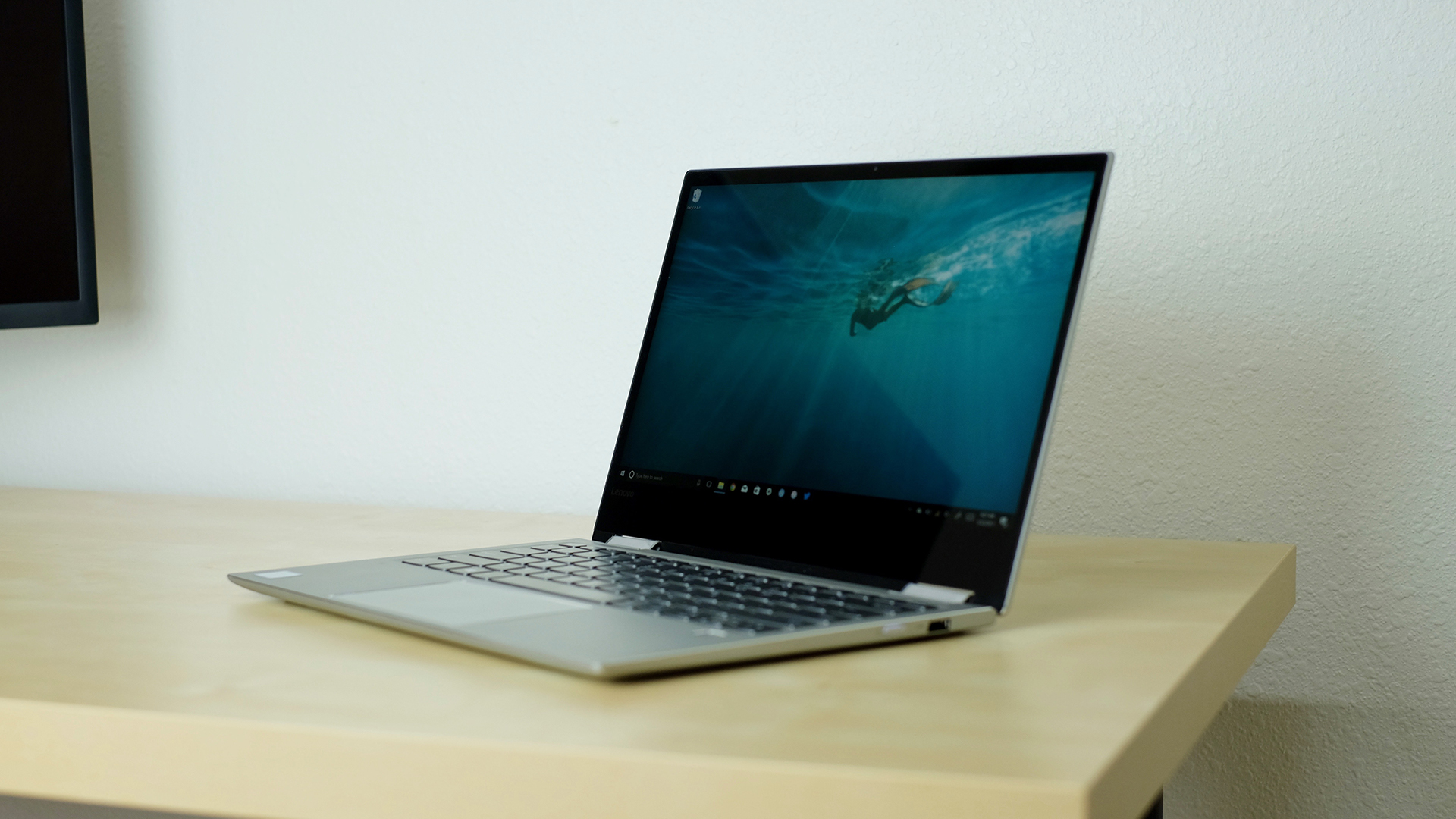Why you can trust TechRadar
Here’s how the Lenovo Yoga 720 performed in our suite of benchmark tests:
3DMark: Sky Diver: 3,768; Fire Strike: 862; Time Spy: 360
Cinebench CPU: 265 points; Graphics: 45.71 fps
GeekBench: 3969 (single-core); 7680 (multi-core)
PCMark 8 (Home Test): 2802 points
PCMark 8 Battery Life: 4 hours and 22 minutes
Battery Life (TechRadar movie test): 7 hours and 4 minutes
We have no complaints about the Yoga 720’s overall performance. During our testing, we used it as we would our personal daily device.
From browsing Twitter to sending emails, updating apps, minor photo editing, and streaming YouTube how to videos for random home DIY projects, the experience was without any major hiccups.
At no time did we feel as if the Yoga 720 was underperforming with its beefy processor. And, for the most part, the benchmarks back that claim up. The Yoga 720 nearly doubled the 3DMark results of the Zenbook Flip UX 360 and Acer Spin 7, for instance.

One thing we did notice was how little activity was required before the device’s fans would begin spinning. At one point, just opening the Facebook page in Chrome was enough to trigger the cooling fans after a cold boot. That’s one downside of not using a fanless Core M processor.
On the other hand, the device never feels hot to the touch – you just have to get accustomed to the constant hum emitted by the fans. Thankfully, the speakers were plenty loud when streaming music or watching videos, regardless if we used it on our lap or a flat surface.
Battery life
Lenovo touts 8 hours of battery life from the Yoga 720, and we got close to that claim in our movie test, coming in at 7 hours and 4 minutes. Our real world testing found nearly the same results, coming in just shy of the 8-hour total use mark when switching between modes and processing load.
We liked
The Yoga 720 is one of our favorite 2-in-1s to date. Between reliable performance, ease of switching between laptop and tablet mode, and putting the fingerprint sensor where it makes sense in both configurations, it’s clear Lenovo paid attention to the finer details.
We disliked
The Yoga 720’s battery life isn’t horrible; it’s just disappointing it doesn’t live up to the 8-hour sticker on the box.
And for those who’ve yet to fully convert (or should we say invest?) to USB-C accessories and cables, the single USB port and lack of a memory card reader will surely get annoying. USB-C may be the future, but the transition is still painful, especially to our bank accounts.

Final verdict
The Lenovo Yoga 720 excels as a mid tier 2-in-1 device. As we’ve already stated, the ease of switching between modes and the overall performance regardless of configuration should be super appealing to those who don’t need an incredibly powerful machine.
The reliability of the fingerprint reader makes it easy to skip right past the lock screen without much fuss.
It’s just too bad there isn’t another USB port, or at the very least a dedicated memory card reader to help users ease into the USB-C transition. As it is now, you’re likely going to need a few dongles and cables in order to connect your camera, smartphone and an external monitor.
That said, at $829 ($729 if you happen to catch it on sale) the Lenovo Yoga 720 is hard not to recommend. The fast performance, lightweight, solid construction, and a decent battery of this hybrid machine are well worth the cost.
